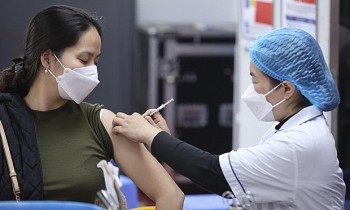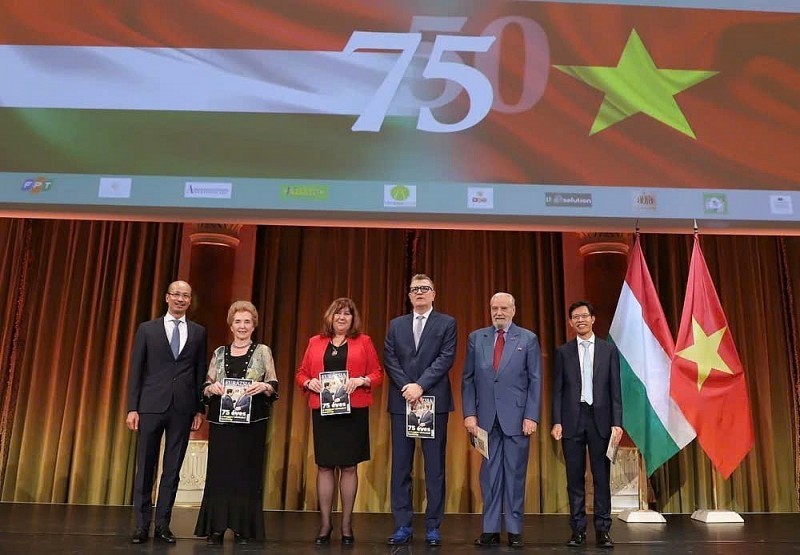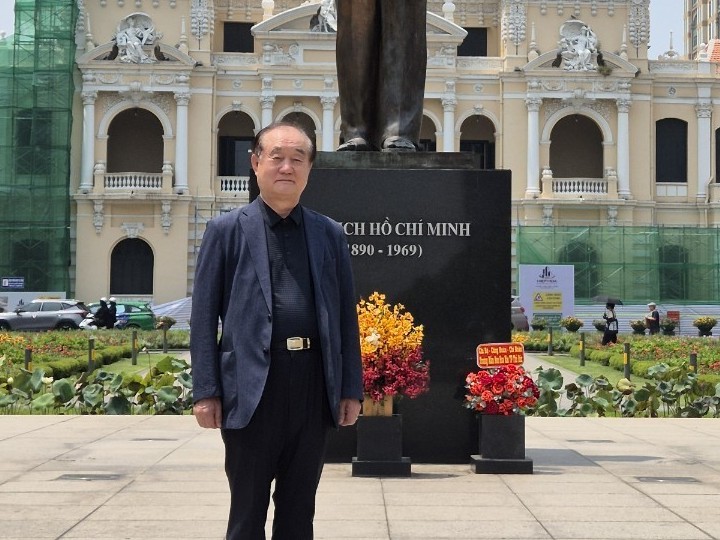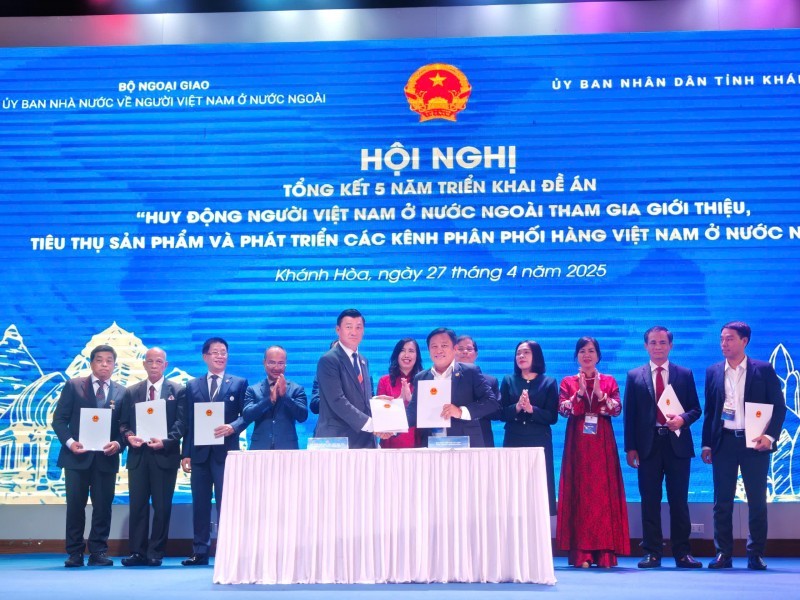Vietnam News Today (Jul. 13): Vietnamese Startups Attract Millions of US Dollars
| Vietnam News Today (Jul. 13) notable headlines Covid-19: national caseload rises to 10,756,254 on July 12 Vietnam, EU share view on importance of sustainable supply chain, food security Vietnamese startups attract millions of US dollars Vietnam and China forge close relations on high political trust Vietnamese agricultural products go online Vietnam, US step up cooperation after Covid-19 Quang Ninh takes steps to become centrally-run city by 2030 State President hosts outgoing Dutch, Swiss ambassadors Vietnam to host third meeting of APEC Business Advisory Council |
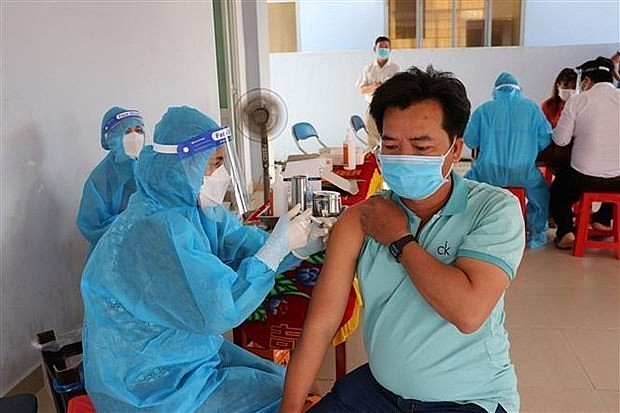 |
| A resident in Tien Giang province gets vaccinated against Covid-19. Photo: VNA |
Covid-19: national caseload rises to 10,756,254 on July 12
The national caseload of Covid-19 reached 10,756,254 on July 12 with 873 new cases reported in the past 24 hours, according to the Ministry of Health.
A total 9,151 Covid-19 patients were given the all clear on the day, bringing the number of recoveries so far to 9,780,172. There are 30 patients in serious conditions needing breathing support, cited VNA.
One death from Covid-19 was recorded in the past 24 hours. The total fatalities stood to 43,090.
On July 11, 346,420 doses of vaccines were administered, raising the total number of doses of Covid-19 vaccines injected to 236,111,209.
Vietnam, EU share view on importance of sustainable supply chain, food security
Minister of Industry and Trade Nguyen Hong Dien and EU Commissioner for Agriculture Janusz Wojciechowski have affirmed the need to step up economic and trade ties, especially amid complicated market uncertainties making it urgent to guarantee sustainable supply chains and food security.
At a recent meeting in Hanoi, Dien highly valued the EU’s close and effective coordination in the enforcement of the EU - Vietnam Free Trade Agreement (EVFTA). He also applauded the deal’s positive effects on promoting bilateral trade, including the fast growth of Vietnam’s agro-forestry-fishery exports to the EU.
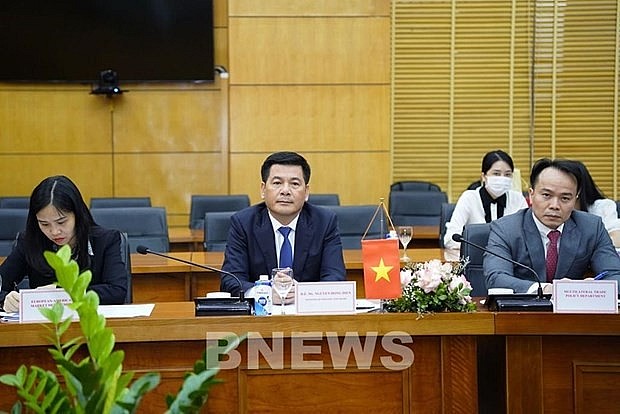 |
| Minister of Industry and Trade Nguyen Hong Dien (center) Photo: Ministry of Industry and Trade |
Amid the necessity for diversifying supply sources to ensure food security, Vietnam holds many advantages and is able to provide agricultural and food products to the EU market, he noted.
The two sides discussed outstanding problems and worked on orientations and activities, particularly working together to implement the EVFTA more effectively.
The Vietnamese minister asked the EU to continue prioritising technical and financial assistance as well as technology transfer for Vietnam so that the country can effectively carry out cooperation projects on capacity building with policies and production models that meet EU regulations and standards, including food safety, sanitary and phytosanitary measures, and other technical criteria, according to VNA.
Dien called for favourable conditions for production, examination, certification and trading of products while encouraging EU investment in promising areas such as agricultural and food processing, and high-tech farming oriented towards a circular economy, green transition and climate change adaptation.
In the first five months of 2022, bilateral trade rose 15% from a year earlier to US$26.25 billion, including US$19.59 billion in exports and US$6.65 billion in imports from the EU.
Notably, exports of agro-forestry-fishery products, which benefit from considerable preferential treatment under the EVFTA, increased 37.5% to US$2.05 billion, according to the General Department of Vietnam Customs.
Vietnamese startups attract millions of US dollars
The total venture capital raised by startups in Vietnam in 2021 reached a record high of over US$1.5 billion, and capital continued to rise in 2022.
According to the Vietnam Innovation and Technology Investment Report published by the National Innovation Center of the Ministry of Planning and Investment and Do Ventures, Vietnam ranks third in Southeast Asia (after Singapore and Indonesia) in terms of the number of invested startup projects and the value of capital invested in start-ups.
In early 2022, many startups in Vietnam also lured millions of US dollars from foreign funds.
SoBanHang: In March 2022, SoBanHang, a management application for small business households and online retailers, raised US$2.5 million from FEBE Ventures, Class 5, Trihill Capital and others.
SoBanHang was developed by brothers Bui Hai Nam and Bui Hai Long to help small businesses and business households create online stores and manage orders. Mr. Bui Hai Nam was once the CEO of Lazada Vietnam, while his brother Bui Hai Long used to be the Chief Analyst and CTO of the supermarket chain Landers Superstore in the Philippines. The capital will help SoBanHang focus on products and develop new features to support sellers in a more comprehensive way.
Infina: In February 2022, Infina platform announced that it had successfully raised US$6 million in a seed round from six foreign investors, including Sequoia India's Surge program, Y Combinator incubator, Saison Capital Ventures, Starling Ventures, Alpha JWC, and AppWorks. Some of the other investors participating in this round have invested in similar startups and fintech models in other markets. Infina is an investment and accumulation platform focused on the Vietnamese market. Users have a wide range of investment options ranging from fixed income products to fund certificates, and stocks.
OpenCommerce Group: In late February, cross-border e-commerce company OpenCommerce Group (OCG) announced it had raised $7 million in a Series A funding round. Headquartered in Hanoi with representative offices in San Francisco (USA) and Shenzhen (China), OCG provides whole-package support services for online sellers with low cost and limited risk. More than two years after its launch, the platform has helped more than 86,700 people from 195 countries do their e-commerce business globally, reaching $670 million in GMV value. The company's technology ecosystem currently consists of three key products: ShopBase, PrintBase and PlusBase.
 |
| Photo: VNN |
Mio: In early 2022, Mio, an e-commerce platform via social networks, announced funding of $8 million in the Series A round, bringing the total capital raised by the company since its establishment to $9.1 million. The new investors include Jungle Ventures, Patamar Capital, Oliver Jung, GGV, Venturra, Hustle Fund, iSEED SEA and Gokul Rajaram. Established in June 2020, Mio is a trading platform for buying and selling agricultural products and FMCG for tier 2 and 3 cities in Vietnam. The criteria that the startup sets for commodity products on its platform is consistent quality, affordable price and next-day delivery.
Timo: Timo digital bank this year raised $20 million from Square Peg, an investment fund with experience in supporting and investing in Fintechs such as FinAccel and Airwallex, along with the participation of investment funds Jungle Ventures, Granite Oak, Phoenix Holdings and other angel investors, reported VNN.
Established in 2015, Timo provides digital banking products related to payment and processing banking requests without the need for customers to visit physical branches. Users can even open a bank account without going to the bank for fulfilling the registration procedures. Notably, Tech in Asia says that Timo is aiming to be licensed as a digital bank in Vietnam.
Jio Health: In early March 2022, Jio Health - a healthcare startup based in Vietnam - announced the completion of a series B funding round worth $20 million led by Singapore-based investment fund Heritas Capital. Other investors include Fuchsia Ventures, Kasikorn Bank Group and existing investor Monk's Hill Ventures.
Jio Health was founded in 2014 with the goal of using modern technology to provide affordable healthcare on demand. Through a smartphone application, this platform helps doctors and nurses to visit and care for patients anytime, anywhere more conveniently. The company currently has 150 general care providers on its platform.
Vietnam and China forge close relations on high political trust
Deputy Prime Minister Pham Binh Minh began a two-day visit to China on July 12, during which he is scheduled to co-chair the 14th meeting of the Steering Committee for Bilateral Cooperation.
Both sides have fostered a strong friendship and comprehensive co-operation, recording substantial progress over recent times. They have frequently maintained high-level exchanges and contact in flexible forms to increase political trust between their respective leaderships.
Following the 13th National Congress of the Communist Party of Vietnam held in early 2021, Party General Secretary Nguyen Phu Trong, President Nguyen Xuan Phuc, Prime Minister Pham Minh Chinh, and National Assembly Chairman Vuong Dinh Hue held phone discussions and online talks with their Chinese counterparts, namely General Secretary and President of China Xi Jinping, Premier Li Keqiang, and Chairman of the National People’s Congress Li Zhanshhu, in a bid to outline important orientations for bilateral relations moving forward.
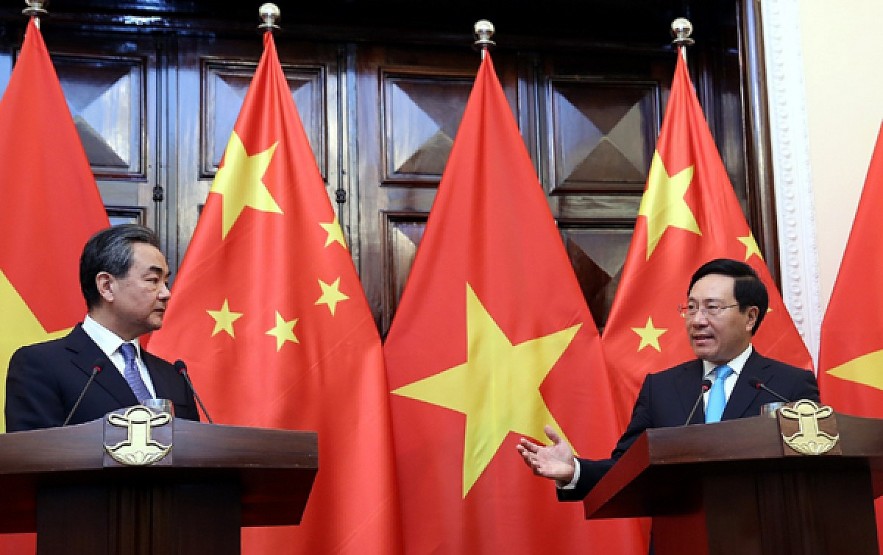 |
| Deputy Prime Minister Pham Minh Minh (R) welcomes Chinese State Councilor cum Foreign Minister Wang Yi in Hanoi in 2018. The two officials are scheduled to co-chair the 14th meeting of the steering committee for bilateral cooperation in Naning during Minh's visit on July 12-13. Illustrative photo: VGP |
With regard to economic co-operation, China is Vietnam’s largest trading partner and second largest export market, while the latter is the former’s largest trading partner in ASEAN and its sixth largest partner in the world. According to the General Department of Vietnam Customs, two-way trade turnover hit US$165.8 billion last year, up 24.6% on-year. The first five months of this year alone saw bilateral trade rise by 13.3% to US$64.06 billion.
As of June, China ranked sixth out of 139 countries and territories investing in Vietnam with a total registered capital of US$22.31 billion. Problems in some co-operation projects were gradually removed, whilst the Cat Linh-Ha Dong urban railway line using Chinese loans was officially put into operation, cited VOV.
Bilateral co-operation in the Covid-19 fight has achieved many substantive results. China is one of the main countries that has provided the most Covid-19 vaccines for Vietnam, thereby making effective contributions to pandemic prevention and control throughout the country.
The two countries have closely co-ordinated and satisfactorily handled issues on the basis of legal documents on land border management reached by their top leaders to maintain peace and stability along their shared border. Despite some new complicated factors occurring at sea, the situation remains stable, with the two sides maintaining channels of dialogue, negotiation, and efforts to control disagreements in line with international law, including the 1982 UN Convention on the Law of the Sea (UNCLOS).
The two countries have actively co-ordinated to promote peace, stability, and co-operation in the region and the rest of the world at multilateral forums, especially at ASEAN and UN forums.
However, due to the negative impact of the Covid-19 pandemic, the mutual partnership has faced several difficulties, with two-way trade turnover showing signs of slowing down, as well as the customs clearance of goods at border gates not going smoothly. The two sides have also yet to resume direct flights, meaning Vietnamese students have been unable to return to Chinese universities to study.
Therefore, the current visit to China by PM Minh is of great significance as it demonstrates both sides’ strong resolve to maintain high-level exchanges in order to increase political trust. It will help effectively implement Vietnamese and Chinese leaders’ common perceptions to develop the friendship and boost win-win co-operation in a result-oriented manner.
The two sides will also review bilateral co-operation after their 13th meeting in September 2021, and discuss major orientations for promoting bilateral ties across all aspects.
They are expected to build on achieved gains to further elevate the comprehensive strategic co-operative partnership to new heights moving forward.
Vietnamese agricultural products go online
Affected by the Covid-19 pandemic, many provinces in Vietnam have paid special attention to e-commerce and have developed their own e-commerce trading floors.
According to a report by the Vietnam E-commerce Association (VECOM), as of March 2022, 44 out of 63 provinces and cities in the country had built their own e-commerce platforms.
Most of these platforms are developed and managed by local departments of Industry and Trade. Notably, up to 75% of these platforms use national domain names. Funding for construction and operation of these platforms mainly comes from the state budget.
According to VECOM, most e-commerce platforms built and operated by local governments are inefficient, with a low number of transactions, poor range of products, outdated technology, and a lack of support services such as marketing, payment, order fulfillment. Most of these platforms are just websites providing information about sellers and products.
One of the main reasons why e-commerce platforms run by local governments operate inefficiently is the shortage and weakness of e-commerce human resources. Many localities do not have staff trained in e-commerce.
Trinh Khac Toan, an expert in this field, said that many platforms do not have specialized personnel nor a product and brand strategy, and lack understanding of the regulations of the target market, especially when introducing goods to international markets.
Ms. Tran Nhu An - competitiveness advisor and manager of IPSC Project of the US Agency for International Development (USAID) – said that most businesses, especially small ones, cannot compete with global rivals, have not yet met user needs, and quality and design of domestic products do not make a difference.
In Vietnam, there is still a digital divide related to gender and geographical area. Most transactions are made in Hanoi and Ho Chi Minh City. In addition, despite the relatively high smartphone coverage, digital knowledge and skills are still a barrier for women and ethnic minority people to enter the field.
Take advantage of your strengths
While many provinces have set up their own e-commerce floors, Hanoi and Ho Chi Minh City, the two leading localities in e-commerce have said no to operating their own local e-commerce platforms. Instead, they take advantage of the professional e-commerce trading floors.
The northern province of Bac Giang is the most successful example in selling their agricultural products on e-commerce floors. Through online trading platforms, this province sold over 48,000 tons of oranges; 36,000 tons of pomelo, 4,000 tons of custard apple, over 60,000 tons of pork and about 17,000 tons of chicken and a variety of agricultural products… in the last months of 2021 and early months of 2022, VNN reported.
Deputy Minister of Information and Communications Pham Anh Tuan said that, as the focal point to implement the National Digital Transformation Program, accompanying the Ministry of Agriculture and Rural Development to promote the development of the agricultural digital economy, on July 21, the Ministry of Information and Communications issued Decision 1034 approving the "Plan to support agricultural production households on e-commerce platforms, promoting the development of the digital economy of agriculture and rural areas”.
 |
| Photo: VNN |
The National Digital Transformation Program approved by the Prime Minister in June 2020 identified agriculture as one of eight priority sectors and fields for digital transformation. Towards the goal of training digital skills, e-commerce business skills and promoting new distribution channels, expanding domestic and international markets, the 1034 Plan has the participation of the Vietnam Post with its Postmart floor and Viettel Group with its voso platform.
In addition to being linked with the Portal of the Ministries of Agriculture and Rural Development, Industry and Trade, the Portal to support agricultural production households on e-commerce floors has also introduced the guidance for agricultural production households to trade and promote products on e-commerce platforms.
According to Metric’s study, Vietnam became the second largest e-commerce market in Southeast Asia in the first half of 2022, behind only Indonesia. Vietnam’s e-commerce market is expected to grow strongly and reach the value of US$39 billion by 2025.
According to the "SYNC Southeast Asia" report, Vietnam is expected to be the fastest growing e-commerce market in Southeast Asia in the next five years.
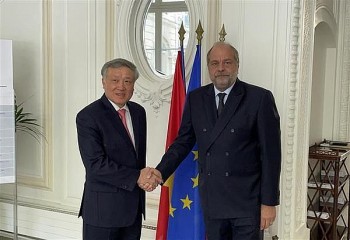 | Vietnam News Today (Jul. 10): Vietnam-Japan Trade Reaches Over US$20 Billion in First Half Vietnam News Today (Jul. 10): Vietnam records 684 Covid-19 cases on July 9; Vietnam-Japan trade reaches over US$20 billion in first half; France, Germany to ... |
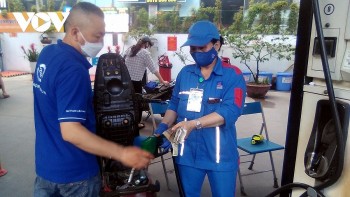 | Vietnam News Today (Jul. 11): Domestic Petrol Market to Fall Sharply on July 11 Vietnam News Today (Jul. 11): Japanese Embassy in Vietnam to open condolence books for late PM Abe Shinzo; Covid-19: national caseload rises to 10,754,813 on ... |
In topics
 National
National
Vietnam News Today (May 13): Vietnam Maintains High Human Development Index Despite Global Slowdown
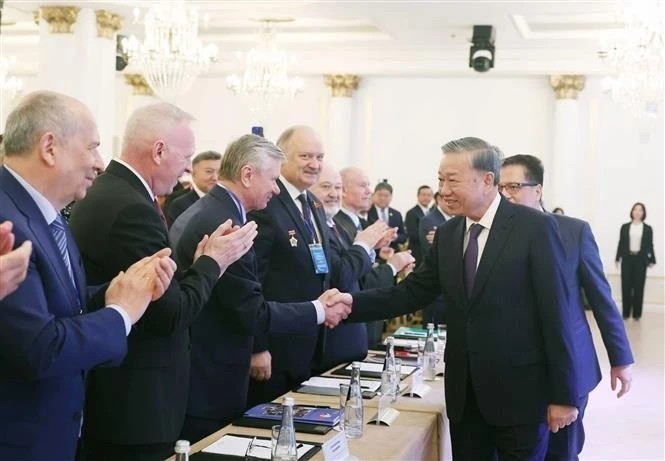 National
National
Vietnam News Today (May 12): Party General Secretary Meets With Russian Experts, Intellectuals
Recommended
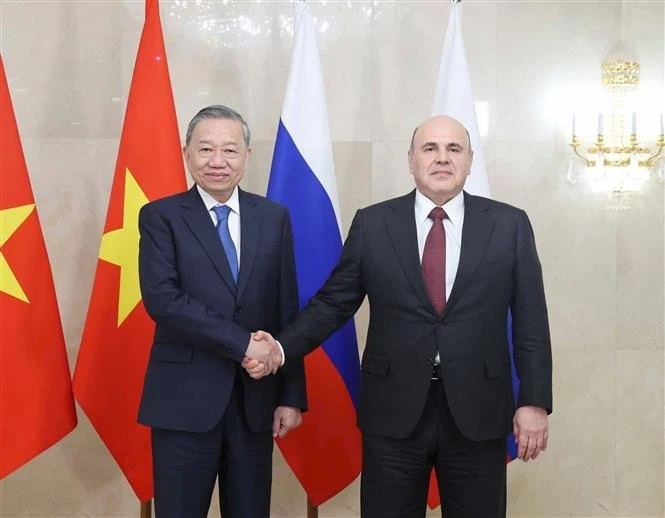 National
National
Vietnam News Today (May 9): Vietnam Ready to Work With Russia to Elevate Relations
 National
National
Vietnam News Today (May 8): Vietnam Remains Committed to UNCLOS
 National
National
Vietnam News Today (May 7): Vietnam Hosts Over 7.67 Million International Visitors in First 4 Months
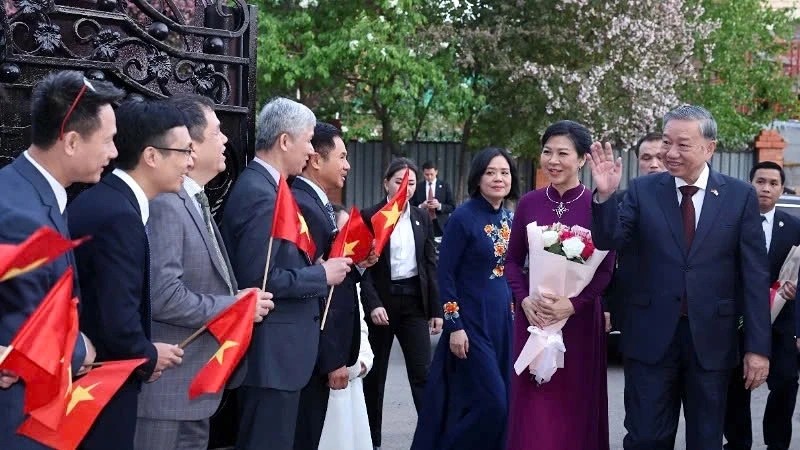 National
National
Vietnam News Today (May 6): Party Leader To Lam Meets Vietnamese Expatriates in Kazakhstan
Popular article
 National
National
Vietnam News Today (May 13): Vietnam Maintains High Human Development Index Despite Global Slowdown
 National
National
Vietnam News Today (May 12): Party General Secretary Meets With Russian Experts, Intellectuals
 National
National
Vietnam News Today (May 11): Vietnam, Austria to Boost Cooperation in High-Tech Development, Innovation
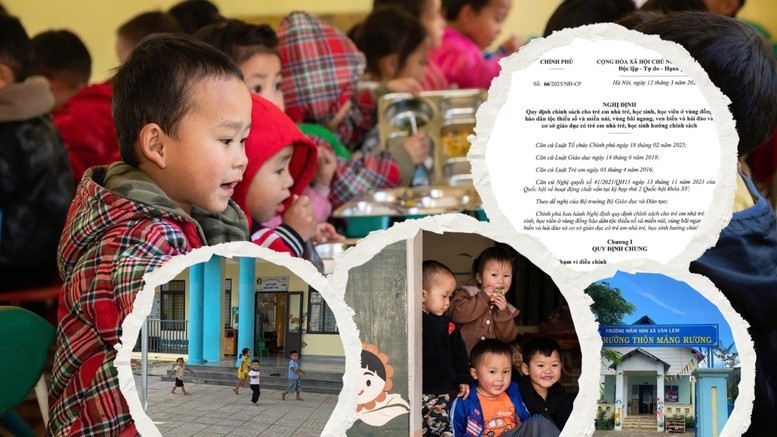 National
National

